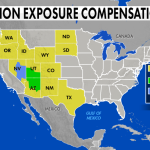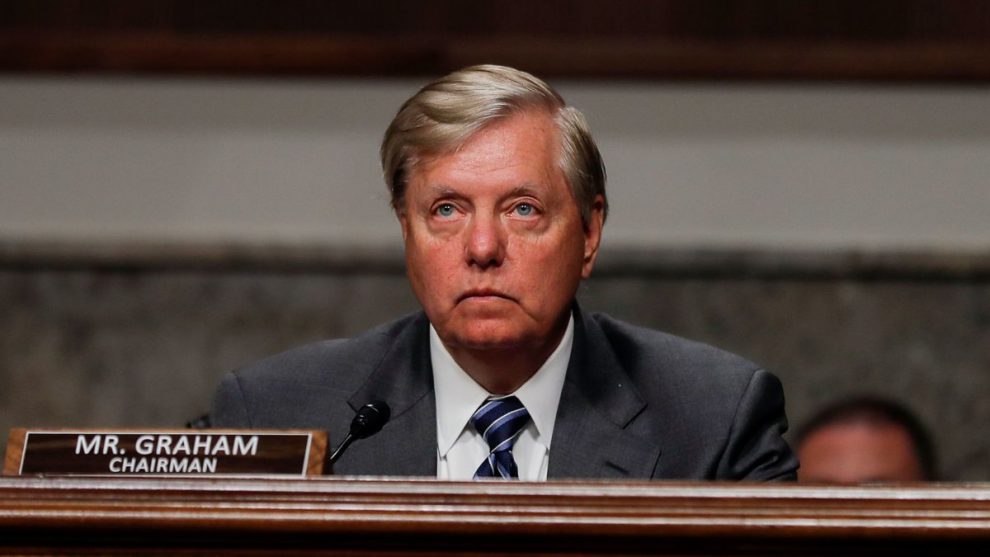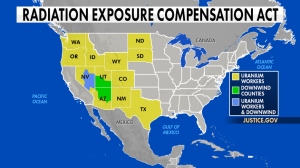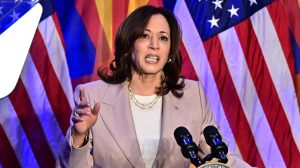The Senate Judiciary Committee voted Thursday to authorize subpoenas for more than 50 individuals as Republicans ramp up their investigation into the 2016 Russia probe.
In a 12-10 party-line vote, Republicans on the panel gave Chairman Lindsey Graham (R-S.C.) broad authority to subpoena the individuals, who include high-profile Obama administration officials, for interviews or documents tied to his investigation.
Graham, who has aligned himself closely with Trump in a year both are seeking reelection, has defended the probe, despite deep frustrations among members of the committee.
“I find myself in a position where I think we need to look long and hard about how the Mueller investigation got off the rails,” he said on Thursday. “This committee is not going to sit on the sidelines and move on.”
Graham is doing a broad investigation that includes probing “Crossfire Hurricane,” the name of the FBI’s investigation into Russian election interference and the Trump campaign.
Thursday’s vote gives Graham the power to subpoena officials including former FBI Director James Comey, former national security advisor Susan Rice and former Director of National Intelligence James Clapper.
He was also granted subpoena power to compel documents and records referenced in Justice Department inspector general Michael Horowitz’s review of Foreign Intelligence Surveillance Act (FISA) warrant applications related to former Trump campaign aide Carter Page, as well as testimony from anyone named in the report.
The vote also gives Graham authority to subpoena documents or testimony from “any current or former executive branch official or employee involved in, the Crossfire Hurricane investigation … or the receipt or analysis of reports prepared by Christopher Steele,” who compiled an infamous opposition research dossier against then-candidate Trump.
Democrats tried several times to amend the subpoena to include Trump allies and former aides, including former Trump lawyer Michael Cohen, former Trump campaign adviser Rick Gates, former national security advisor Michael Flynn, Trump son-in-law and adviser Jared Kushner and former Trump campaign manager Paul Manafort. Republicans rejected the amendments in a party line vote.
More than an hour into the meeting, Durbin said he still had five amendments related to subpoenaing individuals that the GOP majority “doesn’t want to hear from.” When Graham asked if he wanted to merge the subpoenas into one vote, Durbin replied, “no, I don’t.”
Democrats have also indicated that they want to hear from former special counsel Robert Mueller. Graham said on Thursday that he was open to hearing from Mueller or a Mueller-team designee, though members did not vote to do so during the committee meeting.
Under committee rules, Graham can issue a subpoena either as part of a deal with ranking member Dianne Feinstein (D-Calif.) or with a majority vote of the committee. Because Republicans hold a 12-10 majority on the panel they were able to grant Graham the subpoena power as long as every GOP senator voted for it.
But Feinstein argued that it would break the spirit of committee rules because Graham would not have to come back to the panel for specific subpoenas and was, instead, trying to “grant himself unilateral subpoena authority.”
“The resolution would give the chair sole authority to issue literally hundreds of subpoenas without any agreement from the ranking member of any committee vote on any specific subpoena,” she added.
Feinstein also tried to add that would also allow Democrats to be able to issue subpoenas, but Republicans rejected that along party lines.
Graham’s investigation comes as Senate Republicans are increasingly embracing Trump’s call to investigate decisions stemming from the Obama administration and the Russia probe, which the president, his allies and some members of Graham’s committee have called a “witch hunt.”
Graham has denied that his probe is motivated by politics or pressure from Trump, who has publicly urged him to lean into the investigation. But he wants to release a report on his findings by October, keeping the issue in the spotlight in the final weeks leading up to the election.
The plan has sparked fierce tensions with Democrats both on and off the Judiciary Committee, which has been at the center of high-profile fights in recent years.
The committee had initially been expected to approve the subpoena last week, but Graham announced mid-meeting that they would delay the vote because of a time crunch as they brushed up against a previously scheduled Senate vote.
“We’re going to do what this committee needs to do, and we’re going to fight it out and we’re going to vote. … I think the best thing for us to do is [to] carry this over to next week so we can have a full discussion,” Graham said last week.
His decision came as frustrations were running high amid the business meeting.
“This is about a president who just can’t get over it, maybe he will never will, and by a chairman who wants him to have another day to make his point about how he was mistreated,” Sen. Dick Durbin (D-Ill.) told Graham during the meeting.
Scroll down to leave a comment:





























